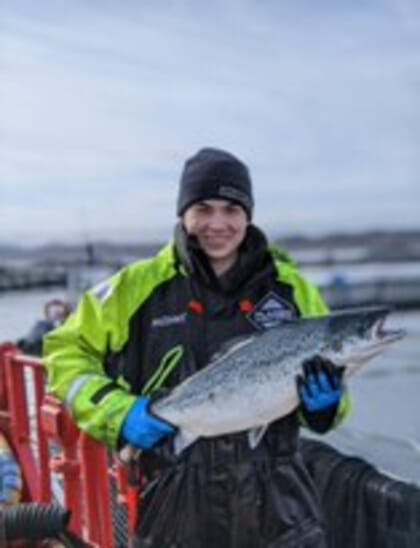
The organic salmon, which is also certified to EU organic standards and approved by Agriculture Biologique in France, will be sold under newly created brand, the Scottish Organic Salmon Company.
Rory Campbell, technical manager at Mowi Scotland, wrote a thesis about organic salmon production as part of his recent MBA. Years of planning and collaboration with the farming, technical, processing and sales teams in Ireland followed,
“The whole journey from idea inception to gaining organic certification and the first fish being harvested has been a really great example of what it means to work at Mowi and how we live our values. Everybody involved in this project has put in a great deal of time, hard work and effort, and it’s been really great to see everything finally come together with the first organic harvest at Loch Ewe,” he told the company newsletter The Scoop.
In order to achieve organic certification with the Soil Association, every step of the process of farming salmon must conform to the robust criteria. This includes the feed itself, the farm at Loch Ewe and the processing plant.
The Soil Association mandates that stocking density must be less than 10 kilos per cubic metre. Antifoulants cannot be used on nets and the use of medicines and pesticides is also restricted. Seabed sampling is carried out every year.
The organic salmon market is still relatively small. However, it is hoped that by increasing the supply of organic salmon, the company can accelerate the market.
Pat Connors, sales and processing director of Mowi Ireland, told The Scoop: “From our 20 years of experience of producing and selling organic salmon, we know that retailers are reluctant to push it to the same extent as conventional salmon because there just isn’t the same guaranteed continuity of supply. Mowi has been confident of supplying organic salmon for nine months of the year, now with the additional Scottish organic volumes, we are confident that we can have continuity of supply 52 weeks of the year.”


